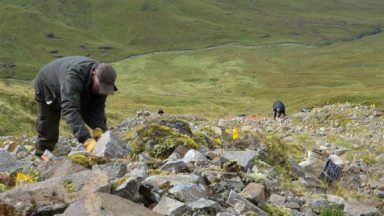Environmental groups have called on the UK Government to step in and end the proposed Cambo oil field off the coast of Shetland.
Shell, who have a minority stake in the controversial project, announced on Thursday evening it would not be investing in the field, which is waiting approval from the regulator.
Shell has a 30% stake in the controversial development, off the coast of Shetland, originally licensed in 2001.
Citing the potential for delay and a lack of strength in the economics, the multinational company said it had concluded against investment.
Siccar Point Energy, Shell’s partners in the development, said it was disappointed at Shell’s change of position but that it remained confident in the merits of the project.
Jonathan Roger, the company’s CEO, said: “We are in consultation with the regulator and stakeholders on taking Cambo forward and the next steps required to do that.
“It is widely accepted that oil and gas is needed to support the UK during the transition to preserve jobs and provide enough power for our homes and businesses.
“Norway continues to invest in both new oil and gas and renewable developments to deliver a fair and managed transition, but the UK is at risk of damaging its economy and increasing imports with a higher carbon impact if new developments are not brought forward during this time.
“The Cambo licence dates back 20 years and production has already been accounted for in net-zero plans drawn up by the Climate Change Committee, the Oil and Gas Authority (OGA) and the Office for Budget Responsibility (OBR).
“Domestic production is declining rapidly and is unable to meet current and future demands even with new developments such as Cambo.”
However, Caroline Rance from Friends of the Earth Scotland said Shell’s announcement “spells the end of the line” for the project.
She said: “[This] is great news for the climate and all those people around the world who are living on the frontline of climate impact already.
“It looks incredibly unlikely that Siccar Point Energy, the company who own the 70% stake, would be able to attract anybody else into this project now.
“Shell are one of the biggest, best resouced, most experienced oil companies in the world and if they are saying ‘this is uneconomic and this is too risky’ it really doesn’t look like they are going to get anybody else to come in and take that stake.”
In November, as COP26 ended in Glasgow, First Minister Nicola Sturgeon voiced her strongest opinion so far on the proposed development, saying: “I don’t think that Cambo should get the green light.”
She had previously urged the UK Government to reassess the plans, amid growing concern over the impact of fossil fuels on climate change.
Speaking to STV News on Friday, she said: “We can’t shut oil and gas off overnight. Nobody’s suggesting that, and we mustn’t leave those who currently work in oil and gas on an economic scrapheap, but for the sake of the planet, Scotland, the world has to accelerate the transition away from fossil fuels.
“And the challenge for countries like Scotland is to do that by building up the alternatives, so that we meet our energy needs without being more reliant on imports, but to do that in a way that we’re creating alternative jobs for the skills and the jobs that are currently in oil and gas.”
The Cambo field will produce 170 million barrels of oil equivalent during its 25-year operational life and 53.5 billion cubic feet of gas, enough to power 1.5 million homes for a year, accoring to Siccar Point Energy.
UK energy minister Greg Hands said: “As a UK Government, we are very supportive of the sector, we did a deal with the oil and gas sector, the North Sea transition deal, last year, we stick by that deal, working with the sector to decarbonise the move to net-zero, while also recognising the importance, particularly of gas, as a fuel – 55% of the UK’s gas is drawn from the UK continental shelf.
“We need to recognise the importance of that energy source going forward.
“The project was licensed in 2001, 2004, there would still be further UK Government approvals to come in future. But really in terms of the future of the project, that would be a matter for the companies involved, or potential future companies, to have a look at it.”
Industry bosses say continuing to extract oil and gas from the North Sea is crucial for the country’s energy needs
Jenny Stanning, external relations director at Oil and Gas UK, said: “This is a commercial decision between partners but doesn’t change the facts that the UK will continue to need new oil and gas projects if we are to protect security of supply, avoid increasing reliance on imports and support jobs.
“However, we know that to deliver the transition to a lower carbon future, investor confidence remains essential.
“The government has made clear that gas and oil have a critical role to play in the nation’s future energy supply and we will continue to work with governments, industry and politicians of all parties to make this case.”
Follow STV News on WhatsApp
Scan the QR code on your mobile device for all the latest news from around the country




























